China US relations, often cited as the world’s most important bilateral relationship, endured another testy month. Beijing will fight “to the end” in the trade war, warned China’s state broadcaster, in response to Donald Trump’s surprise tariff hike. “After 5,000 years of wind and rain, what hasn’t the Chinese nation weathered?” said the anchor in a widely-watched, punchy commentary. This article is a summary of major US China news in May 2019.
Despite tough rhetoric and new tariffs from both sides, Trump predicted “a very fruitful meeting” with Xi in late June at the G20 in Japan. “China is becoming a very weakened nation” and “would love to make a deal with us,” he insisted. New Chinese tariffs come into effect on 1 June, and further “goodwill” purchases of US soy have been put on hold.
“We advise the US side not to underestimate the Chinese side’s ability to safeguard its development rights and interests. Don’t say we didn’t warn you!” said the People’s Daily, the Communist Party’s mouthpiece. The warning threatens US access to China’s rare earth minerals, used to make US fighter jets, missiles and far more besides.
Still firmly in the eye of the tech/trade storm, Huawei filed a legal motion to declare a US defence law unconstitutional, part of its fight against US sanctions. “Huawei is an instrument of the Chinese government,” said Secretary of State Pompeo. “They’re deeply connected. It’s something that’s hard for Americans to understand.”
“Now there is a new Long March, and we should make a new start,” said Xi Jinping at the place where the Communist Party began its survival trek in 1934. Instead of Chiang Kai-shek’s Nationalists, the Americans are today’s foes, but they won’t succeed in blocking China’s path to national rejuvenation and global respect, insisted China’s media.
With no new trade war talks scheduled, the rhetoric is hardening and the nationalism rising on both sides. Xi toured a major processor of rare earths, a key export which could be used as a bargaining chip. Trump plans further restrictions on exports of hi-tech goods to China, making life difficult for many Chinese firms that rely on such products. Huawei is suffering from lack of access to Google’s Android operating system, and chip-maker ARM’s technology.
In a double-pronged attack, Trump blacklisted Huawei from buying parts and components from US companies without US government approval, and issued an executive order declaring a national emergency that blocks US firms from using telecoms equipment made by companies considered a threat to national security.
China’s finance ministry said it plans to set import tariffs of between 5% and 25% on approximately $60bn worth of US goods. The tariffs are due to take effect on June 1. “China’s adjustment of tariff-adding measures is a response to US unilateralism and trade protectionism,” said China’s Ministry of Finance in a statement.
US and Chinese trade negotiators ended talks in Washington without an agreement because of differences in “significant issues of principle”, according to Vice Premier Liu He. The two sides will continue the discussions, but according to the FT, “both sides felt the need to manage market expectations and avoid the perception of a full breakdown”.
China’s Ministry of Commerce expressed “deep regrets” at the United States’ move to impose additional tariffs on Chinese imports and vowed to take necessary countermeasures. Meanwhile, US Trade Representative Robert Lighthizer said, “The President also ordered us to begin the process of raising tariffs on essentially all remaining imports from China, which are valued at approximately $300 billion.”
Just as many observers hoped a deal was close, Trump surprised global stock markets by raising tariffs from 10 May on $200bn worth of Chinese goods from 10 to 25%. He’s also “starting the paperwork” to impose a 25% tariff on the $325bn untouched so far by the trade war.
His top trade rep explained that China has been retreating from commitments already made in many months of negotiations. Xi’s chief negotiator, Liu He, still travelled for talks in DC, but there was neither time nor sufficient will to avert the tariff hike. “Good man,” Trump said of Liu, “but they broke the deal.” Beijing quickly vowed to take “the necessary countermeasures.”
The Communist Party newspaper, the People’s Daily, insisted that Beijing will not make concessions in trade talks in response to Trump’s latest tariff threats. But in one important concession, China announced plans to open up its massive financial sector to the world.

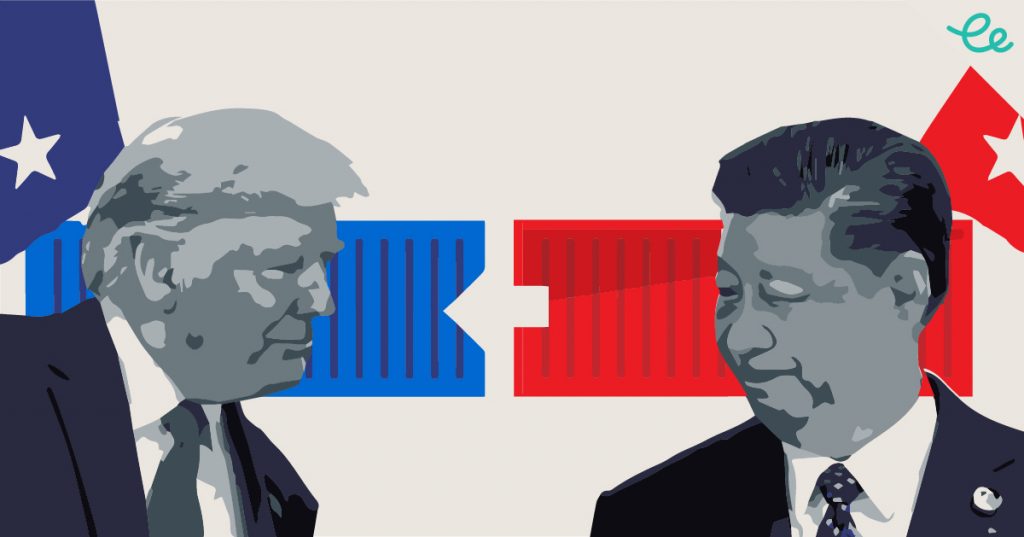
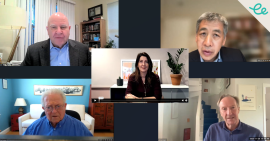

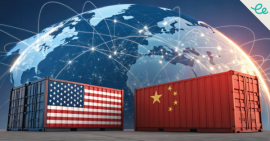

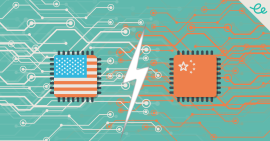
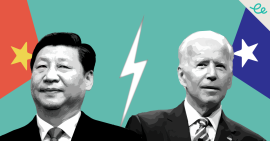

Comments are closed.